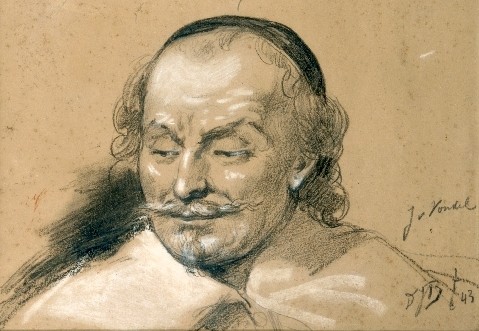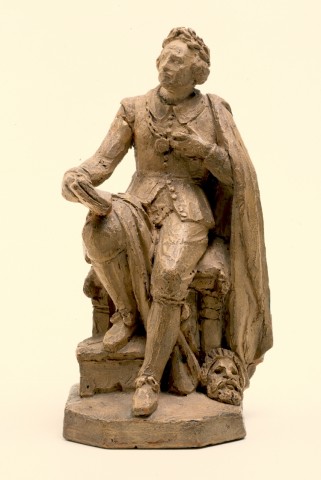This was not due to his poems, although in the seventeenth century he was first and foremost a celebrated dramatist. Nowadays we value his poems in particular, and especially his satirical poems, which are still very readable. They concern matters that rightly enraged the poet, and the language he used is funny and crystal-clear. The people who angered him were the kinds of people to whom one would still give a wide berth today: humourless clergymen, silly know-it-alls and hypocritical scoundrels.
The poems that he wrote about his enemies were merciless. Precisely because they were of such an undeniably high quality, they caused great agitation among his enemies, who would naturally have preferred to continue undisturbed. Had he only written poems, things might not have turned out well for Vondel. But he was also a playwright, and one unparalleled in his day. We no longer read these plays, and only Gijsbrecht van Amstel is still performed. But it was his drama that ensured him the glory that made him unassailable by his many enemies.
Vondel became openly Catholic in an age when the Reformed Church was the established church and pastors were doing their best to drive the Catholic Church out of the Netherlands. As a Catholic, he wrote religious plays that were performed and a series of poems about the Holy Virgin Mary.
His belief brought him back into the limelight in the nineteenth century. At the beginning of that century, the ban on the Catholic Church was lifted and prominent Catholics did their best to give their church a firm footing in society. Vondel belonged to their tradition. The Special Collections possesses eight portraits of Vondel. Six of them date from the nineteenth century, as does a preparatory study for the statue in Vondelpark. The most beautiful portrait, however, is by his contemporary Jan Lievens, the childhood friend and later rival of Rembrandt.

